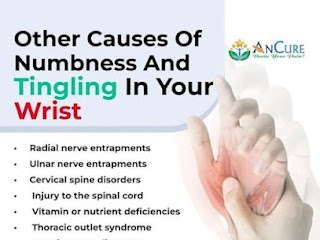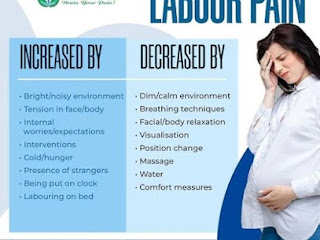Welcome to our comprehensive guide on non-surgical treatment options for knee pain in Chinchwad, Pune. If you are seeking effective relief for your knee discomfort without undergoing surgery, you've come to the right place. In this article, we will explore various non-invasive methods and therapies that can help alleviate knee pain, improve mobility, and enhance your overall quality of life.
Understanding Knee Pain
Knee pain is a common ailment that affects millions of individuals worldwide. It can be caused by a variety of factors, including injury, arthritis, overuse, or underlying medical conditions. Regardless of the cause, living with knee pain can significantly impact your daily activities and hinder your ability to enjoy life to the fullest.
Non-Surgical Treatment Options
Fortunately, there are numerous non-surgical treatment options available that can effectively address knee pain and promote healing. Let's delve into some of the most prominent methods:
Physical Therapy:
Physical therapy plays a crucial role in managing knee pain. Skilled therapists employ targeted exercises and manual techniques to strengthen the muscles surrounding the knee joint, increase flexibility, and improve overall joint function. Additionally, they may incorporate modalities such as heat or cold therapy, ultrasound, or electrical stimulation to further alleviate discomfort.
Medications:
In many cases, nonsteroidal anti-inflammatory drugs (NSAIDs) can provide temporary relief from knee pain by reducing inflammation and managing associated symptoms. However, it is important to consult with a healthcare professional before starting any medication regimen to ensure it is suitable for your specific needs and medical history.
Injections:
Corticosteroid injections are a common non-surgical treatment option for knee pain. These injections deliver powerful anti-inflammatory medication directly into the joint, providing rapid relief for many individuals. Another popular injection therapy is hyaluronic acid, which helps lubricate the joint and reduce friction, thereby alleviating pain.
Regenerative Medicine:
Advancements in regenerative medicine have opened up new possibilities for non-surgical knee pain treatment. Platelet-rich plasma (PRP) therapy and stem cell injections are two innovative techniques that harness the body's natural healing abilities to repair damaged tissues and promote tissue regeneration.
Bracing and Supportive Devices:
For individuals with mild to moderate knee pain, the use of braces, knee sleeves, or orthotic devices can provide additional support, stability, and pain relief. These devices are designed to offload pressure from the affected areas and assist in proper alignment, facilitating optimal healing and reducing discomfort.
Lifestyle Modifications:
Making certain lifestyle modifications can have a significant impact on knee pain management. Maintaining a healthy weight reduces stress on the knees, while incorporating low-impact exercises like swimming or cycling can help strengthen the muscles without exacerbating the pain. Additionally, avoiding activities that put excessive strain on the knees and practicing proper body mechanics can help prevent further damage.
Visit here:- Best Trigeminal Neuralgia Treatment Doctor in Pune
.jpg)



